What if two simple ingredients sitting in your kitchen could unlock a world of health and household benefits? According to consumer surveys, nearly 60% of people worldwide try at least one home remedy every year—from ginger tea for sore throats to turmeric milk for joint comfort. But one of the most overlooked combinations is the pairing of lemon and cloves.
Both are powerful on their own: lemon with its vitamin C and refreshing acidity, cloves with their aromatic oils and antioxidant-rich profile. When combined, they form a natural remedy that traditional cultures have used for centuries—supporting immunity, digestion, and even oral health. The best part? You don’t need a fancy supplement or expensive product to try it.
In this article, we’ll reveal the history, science, and practical uses of mixing lemon and cloves. You’ll discover recipes, real-life examples, safety tips, and lifestyle habits that make this duo a valuable addition to your wellness routine. By the end, you’ll see why people call it a “secret” worth sharing.
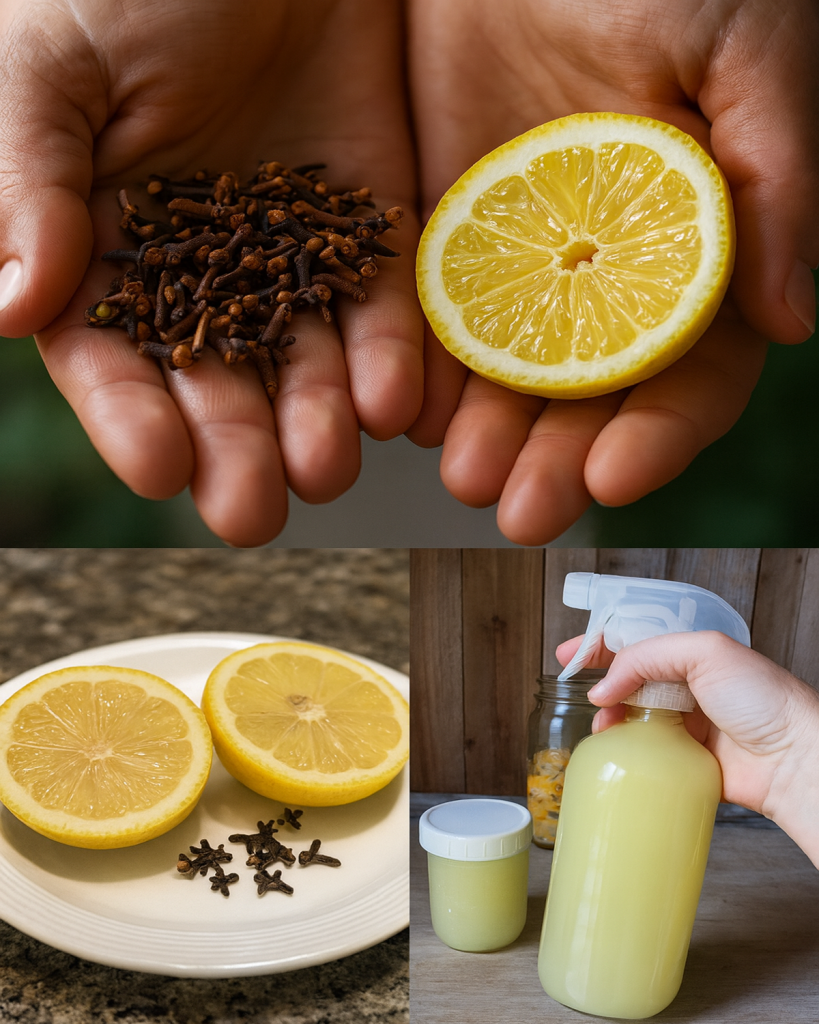
Why Lemon and Cloves Work So Well Together
Let’s break down what each ingredient brings to the table.
The Power of Lemon
- Vitamin C: Essential for immune defense and collagen formation.
- Citric acid: Helps cleanse and alkalize the body.
- Antioxidants: Protect cells from free radical damage.
The Power of Cloves
- Eugenol: A compound with antimicrobial and anti-inflammatory properties.
- Fiber: Supports digestion and gut health.
- Manganese: Important for bone and brain function.
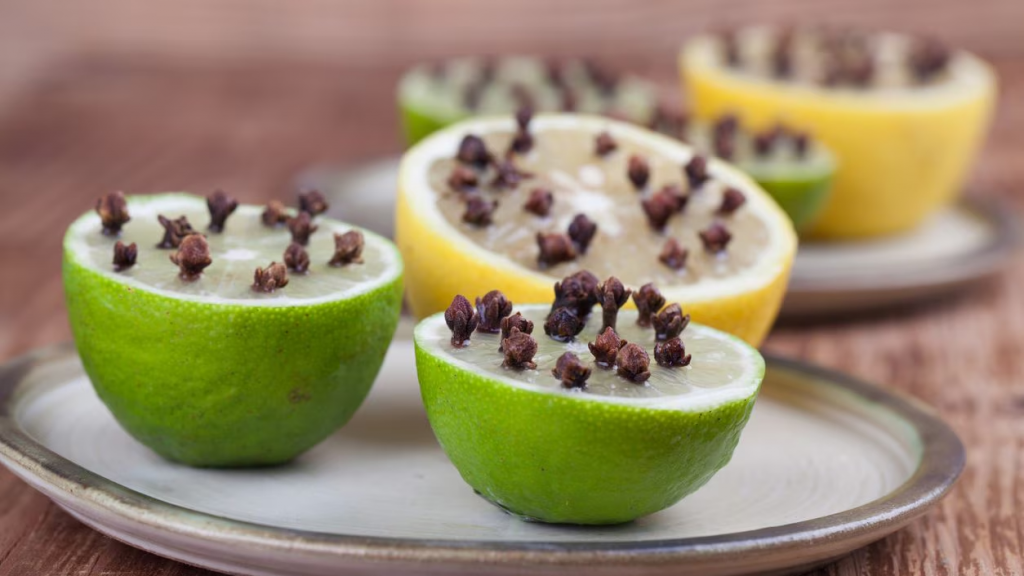
Combined Benefits
When mixed, lemon enhances flavor and absorption, while cloves provide depth and potency. The synergy may:
- Support immunity during seasonal changes.
- Aid digestion after heavy meals.
- Freshen breath and promote oral hygiene.
- Provide natural antioxidant support.
Traditional Uses Around the World
For generations, people have relied on lemon and cloves in daily life.
- In India: Clove-infused teas with lemon are consumed to soothe sore throats.
- In the Caribbean: Lemon-clove infusions are used for digestive support.
- In Mediterranean cultures: Cloves and lemon are combined in warming tonics for winter months.
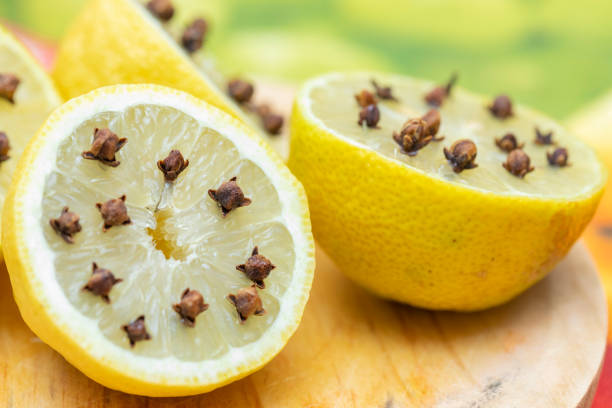
How to Use Lemon and Cloves at Home
Here are practical ways to mix lemon and cloves into your daily life.
1. Lemon and Clove Tea
- Boil 1 cup water.
- Add 4–5 cloves and simmer for 5 minutes.
- Add juice of half a lemon.
- Optional: Sweeten with a teaspoon of honey.
Benefit: May ease sore throat and aid digestion.
2. Infused Detox Water
- Slice 1 lemon.
- Add 6–8 cloves.
- Place in a jug of water and let steep overnight in the fridge.
Benefit: Refreshing hydration with gentle antioxidant support.
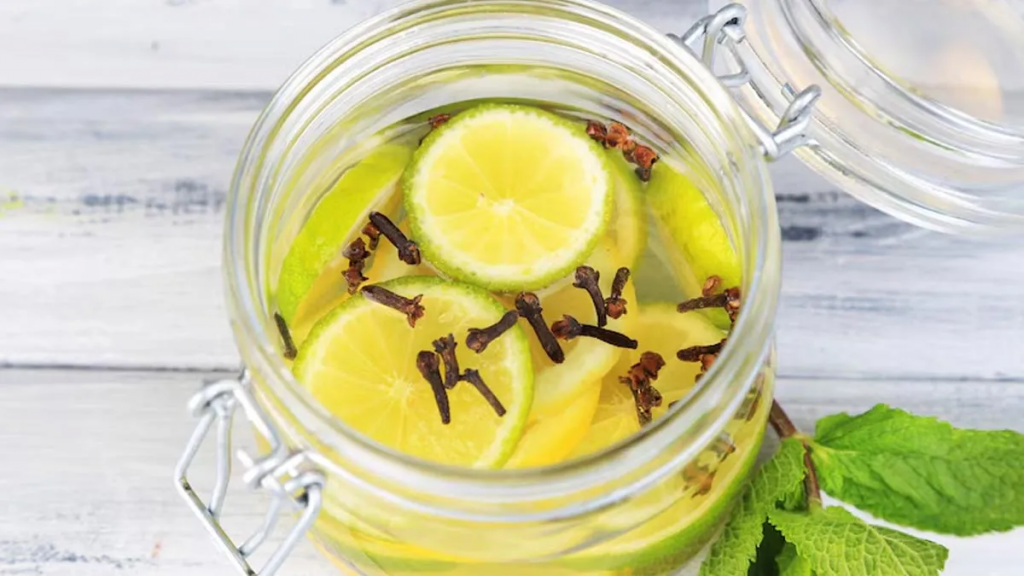
3. Natural Mouth Rinse
- Boil 1 cup water with 3 cloves.
- Let cool and mix with 1 teaspoon lemon juice.
- Gargle for fresh breath and oral support.
4. Home Freshener
- Stick cloves into a whole lemon.
- Place in the kitchen or bathroom to naturally freshen the air.
| Recipe | Main Ingredients | Primary Benefit |
|---|---|---|
| Tea | Lemon juice + cloves + honey | Throat & digestion |
| Detox water | Lemon slices + cloves | Hydration, antioxidants |
| Mouth rinse | Clove decoction + lemon juice | Oral hygiene |
| Freshener | Whole lemon with cloves | Natural air purifier |
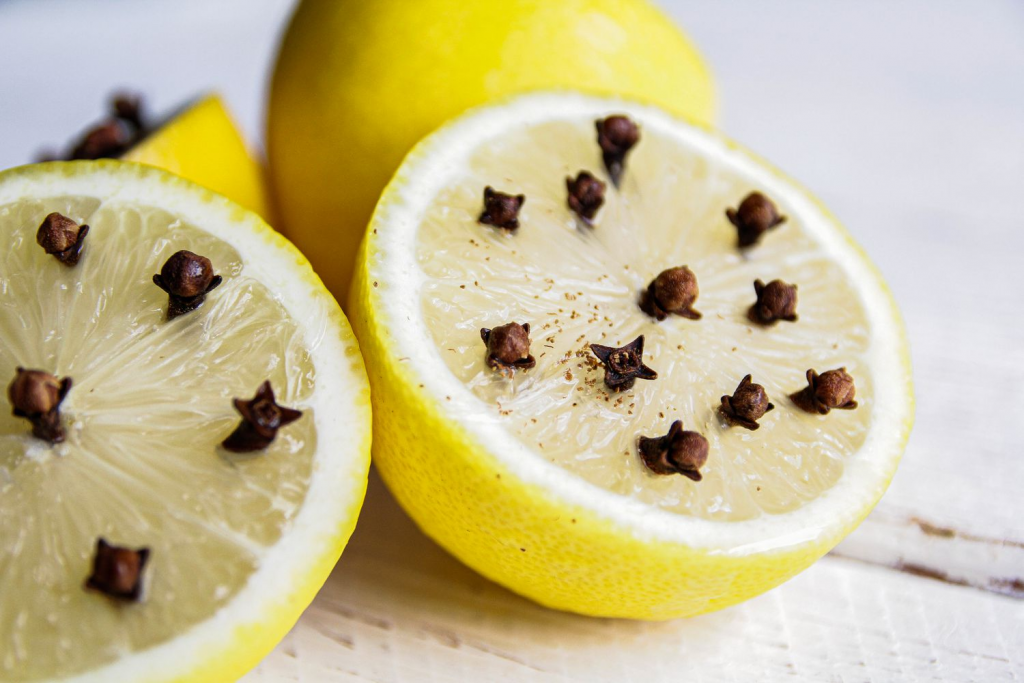
Real-Life Example: John’s Story
John, a 42-year-old office worker, often struggled with indigestion after heavy meals. After reading about lemon and cloves, he started drinking a warm clove-lemon infusion three times a week. Within a month, he noticed less bloating and fresher breath. While he still maintains a balanced diet and regular exercise, he now swears by this simple remedy as part of his wellness toolkit.
What Science Says
Modern research supports many of these traditional uses.
- A study in Food Chemistry showed that cloves have one of the highest antioxidant levels among spices.
- Research in Nutrition Journal found that lemon consumption improves hydration and provides immune support due to its vitamin C content.
- Eugenol from cloves has demonstrated antimicrobial activity against common oral bacteria in lab studies.
However, there are no large-scale trials confirming lemon and cloves as a cure for specific diseases. Their role is best understood as supportive for overall wellness.
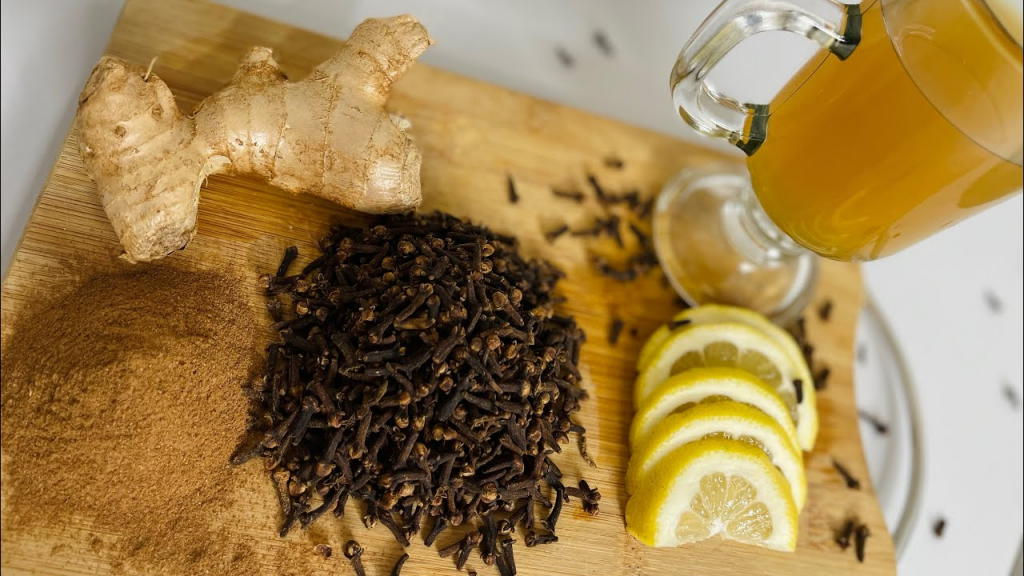
Safety and Precautions
While generally safe, there are important things to remember.
- Acidity: Excess lemon may erode tooth enamel. Always rinse mouth with water afterward.
- Strong oils: Cloves are potent. Overuse may irritate gums or stomach.
- Medical interactions: Cloves may interact with blood-thinning medications.
- Pregnancy: Consult a healthcare provider before frequent use.
Lifestyle Tips to Maximize Benefits
Lemon and cloves work best when part of a holistic lifestyle.
- Eat a balanced diet: Include whole grains, vegetables, and healthy fats.
- Stay hydrated: Infused water with lemon and cloves can help.
- Exercise regularly: Boosts circulation and immunity.
- Limit processed sugar: Reduces inflammation and oral issues.
Common Myths vs. Facts
- Myth: Lemon and cloves can cure all diseases.
Fact: They support wellness but are not substitutes for medical care. - Myth: Drinking lemon-clove tea daily has no side effects.
Fact: Overuse can cause acidity or irritation. Moderation is key. - Myth: Cloves are safe in any amount.
Fact: They contain concentrated oils and should be used sparingly.
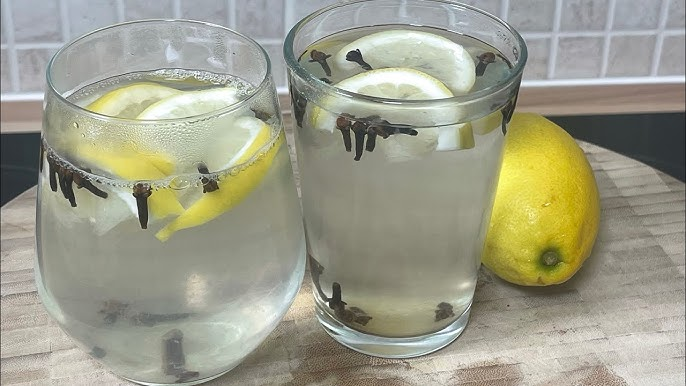
Conclusion
Can lemon and cloves restore health overnight?
No. They may provide quick relief for minor issues, but long-term benefits come from consistent, moderate use.
Are they safe for everyone?
Generally yes, but people with stomach sensitivity, dental issues, or those on medication should be cautious.
Why try them at all?
Because they’re affordable, natural, and can complement a healthy lifestyle in multiple ways.
What’s the best way to start?
Begin with a simple tea or infused water a few times a week, and listen to how your body responds.
This article is for informational purposes only and does not replace professional medical advice, diagnosis, or treatment. Always consult a healthcare provider before starting new remedies, especially if you have existing health conditions or take medication.




